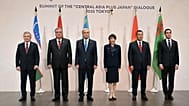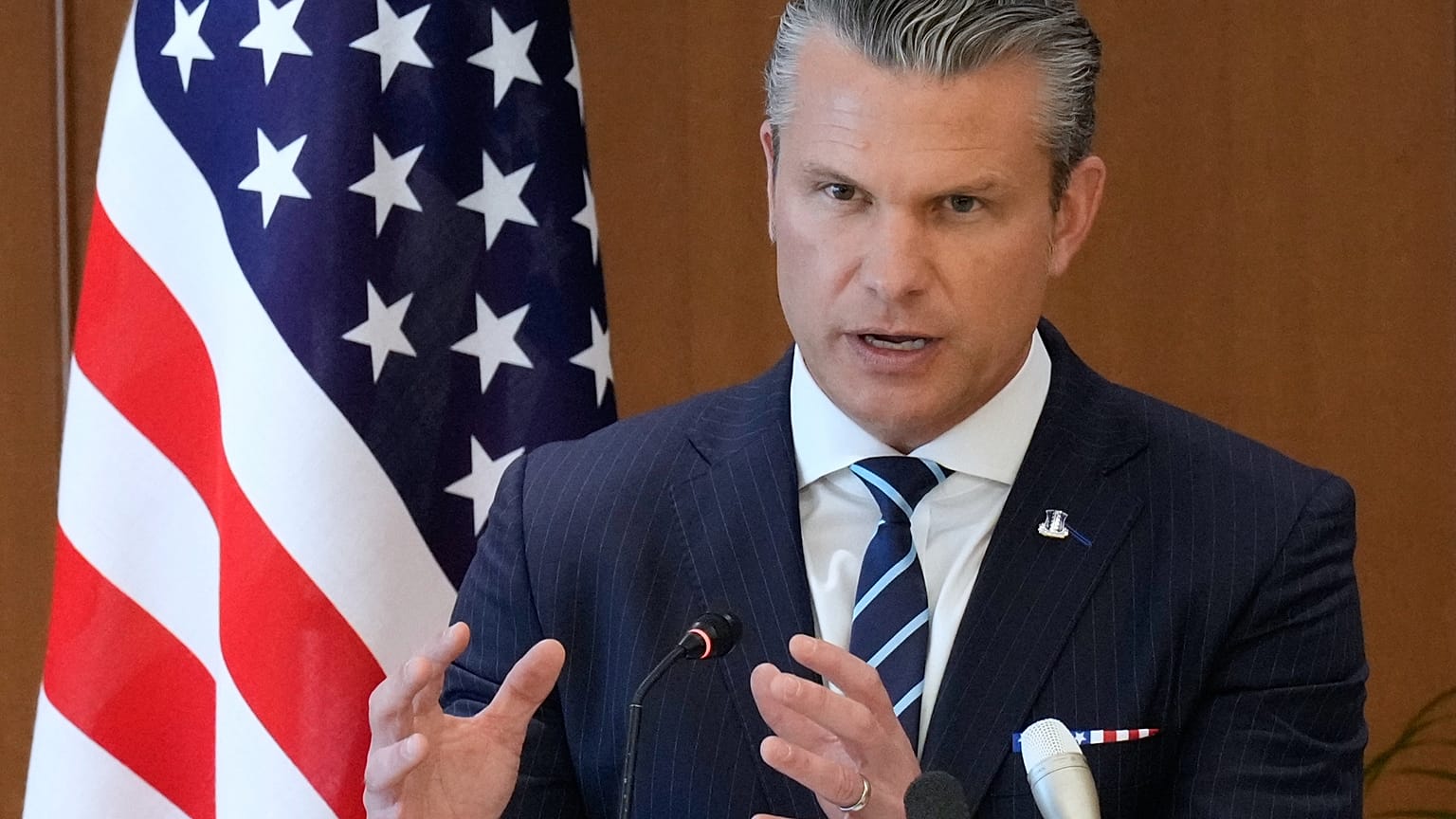US Secretary of Defence Pete Hegseth's decision to remove troops from Romania raises concerns about European security amid ongoing tensions with Russia.
The decision by US Secretary of Defence Pete Hegseth to remove an infantry brigade in Romania has reignited fears about a troop pullback away from Europe by the US administration, even as Russia continues its war of aggression against Ukraine.
While most European allies understand that the US will be pivoting to Asia to counter China's growing influence, experts warn that a sudden, uncoordinated retreat could undermine European security and embolden Russia. Europeans are rushing to rearm at the fastest pace since the end of the Cold War.
Last Wednesday, the United States announced an infantry brigade stationed mainly in Romania would redeploy to its Kentucky home base. The unit of nearly 800 troops will not be replaced.
Former US negotiator for Ukraine Kurt Volker told Euronews the announcement was "not the message the US needs to be sending to Putin right now."
"I don’t think the White House would have wanted this; it’s just not coordinated very well”, Volker said, speaking from his home near Washington.
This “could even be another case of the Pentagon running amok”, Volker stated.
“They make a decision the White House is not informed of, and they have to backpedal,” Volker told Euronews, in reference to previous instances where Hegseth cancelled the provision of air defence systems to Ukraine, which caught the White House and Kyiv off guard.
However, a White House official confirmed to Euronews that "the relevant and necessary parties were aware of the decision."
"This decision was made as European nations continue to heed President Trump’s call to increase their force posture, spend more on defense, and take greater responsibility for protecting the region", the official confirmed.
Was the measure premature?
NATO states have been braced for the US to draw down a significant number of troops from European territory, in line with a widely-touted priority shift in the Trump administration.
The Trump administration has been explicit about its geostrategic repositioning, with a greater focus on theatres in the western hemisphere and the South China Sea.
European NATO countries and Canada have committed to absorbing the burden of European Security, including the cost of military support for Ukraine.
However, the spectre of a sudden, uncoordinated, and drastic troop drawdown by the US, which would leave Europe's Eastern flank vulnerable, remains a concern for America's NATO allies.
Volker said Hegseth's recent measure appeared premature, given the ongoing tensions between the US and Russian President Vladimir Putin's refusal to engage meaningfully in talks to end the war in Ukraine.
US President Donald Trump recently agreed to meet Putin in Budapest in a bid to revive stalled peace talks, but has cancelled the initiative after the Kremlin refused to back down on maximalist demands over Ukraine.
While the figure of 800 withdrawn soldiers is relatively low against the approximately 80-90 thousand troops remaining, the decision conveys a political message to the world about US intentions for European security, Volker says.
Volker – who was Trump’s envoy to Ukraine during his first administration, and US Ambassador to NATO under George W Bush - said he could not see the military logic applied to the decision to draw down the troops at this particular time.
"The announcement doesn’t appear to have incorporated factors such as how quickly do the Europeans spend more on defence, and are they able to share more of the burden of the continent,” he said.
“There is a timing that’s involved in this, and you must consider what the forces mixture is, where the best place to withdraw is," he said.
“We are at quite a high troop presence now – the highest in 30 years”, said Volker, pointing out that under President Barack Obama, US troops dipped as few as 30,000 in Europe.
'Russia is an immediate problem'
The appointment of renowned China hawk Elbridge Colby to US Under Secretary of Defence also prompted questions about future plans in Europe.
Colby has long pushed for a transformative shift in US priorities towards China and its potential plans to invade Taiwan.
But "Russia is an immediate problem”, said Volker.
“And China is looking carefully to see how we deal with our allies and how we confront Russia", he said.
"China is watching all of this", he added.
"Xi perceives how we deal with Russia" will reflect how NATO allies and the US will defend each other against autocratic regimes," Volker said.
The Pentagon is due to publish a global posture review to determine where US troops should be stationed around the world. The exact timing of the review is unknown; potentially early in 2026, but European NATO capitals are anxious the outcome could leave them exposed amid Russia's ongoing hybrid war.
A swathe of drones believed to be from Russia, as well as Russian fighter jets have violated NATO airspace in several countries, such as Poland, Romania and Denmark, in recent weeks. Western capitals are convinced the airspace incursions are part of Putin's playbook to test and potentially divide NATO unity.
Meanwhile, former US Ambassador to NATO Ivo Daalder said the US president is setting his sights on a major confrontation with the Western Hemisphere, particularly in Venezuela.
The US has accused President Nicolas Maduro of being in charge of a narco-state and drug trafficking gang, which is an imminent threat to US security, according to Trump.
Daalder, who served as US ambassador to NATO from 2009 to 2013, believes the Trump administration is soon about to embark on a total reorientation of American foreign policy.
"Frankly, away not just from Europe, but also from the Middle East and Asia toward the Americas and the Western Hemisphere", he said.
“What we are seeing is a disengagement of the United States from European security”, he said.
"Europe is increasingly on its own," he added.
Attention redirected
"Today, in the Caribbean, the United States has not only deployed one seventh of its Navy. It has deployed more military power than any time since 1962, which was during the Cuban missile crisis", Daalder told Euronews from his home in Chicago.
The US military has launched around a dozen strikes against boats in Venezuelan waters, killing dozens of people. The government claims to be targeting the Venezuela-based gang Tren de Aragua.
Maduro has condemned the recent escalation by the US administration, saying the US is “fabricating a new eternal war” against him.
The anticipation in Europe that the US would redirect its attention towards China has been the key operating assumption for some time But this is a miscalculation, Daalder argues.
“Trump doesn't look at China as a military challenge, he looks at China is an economic challenge that he deals with through negotiation”, he said.
The US president has just completed a five-day trip across Asia, including Japan, South Korea, Malaysia and China. The meeting with China's President Xi Jinping appears to have settled tensions between the two sides over Trump's heavy-handed tariff regime in recent months.
“I think he's coming back from his Asia trip, believing that he has stabilised that economic situation for now,” said Daalder.
“And he can go back to what he wants to do, which is to focus first and foremost on Latin America, Venezuela, Colombia”, he said.















